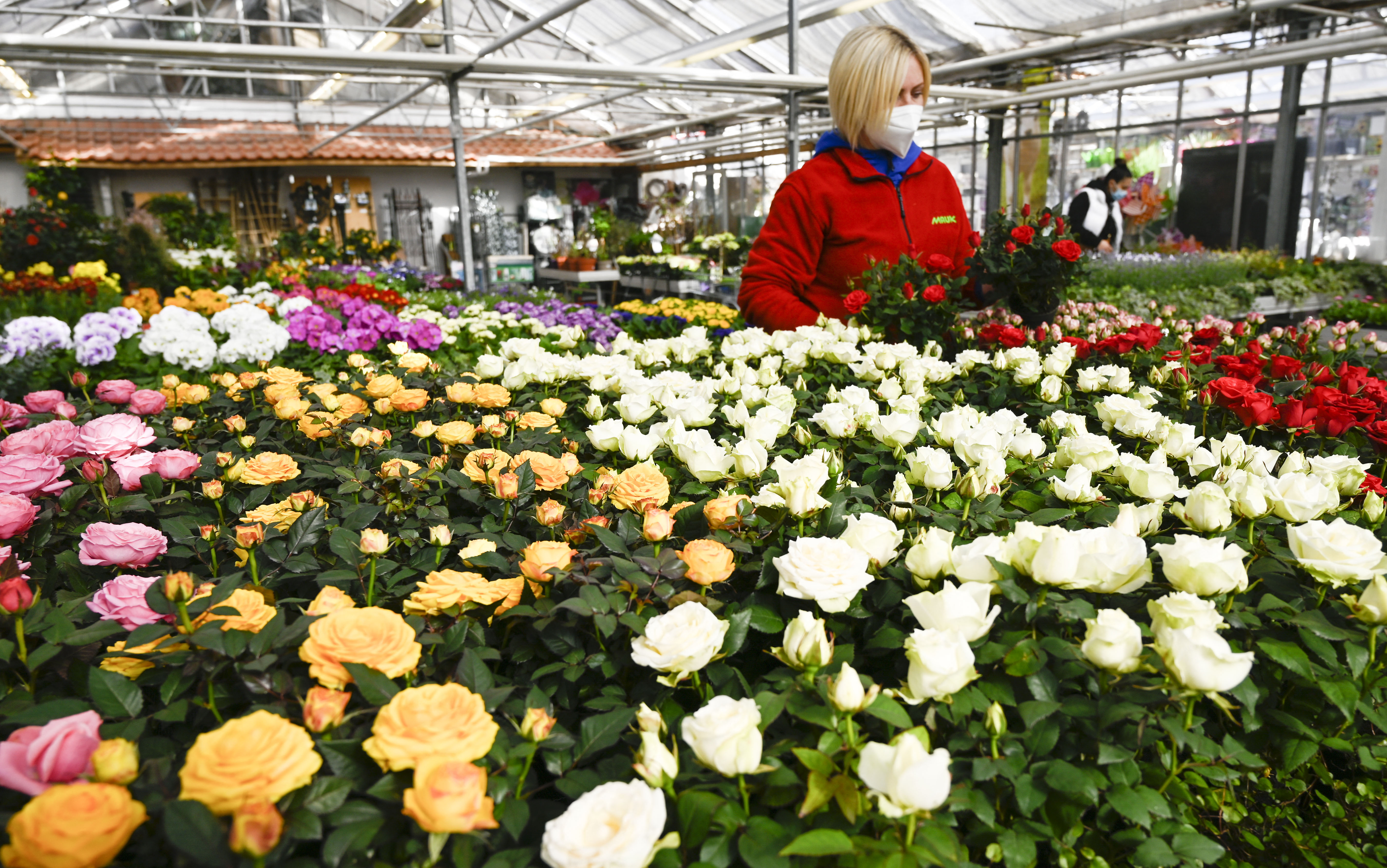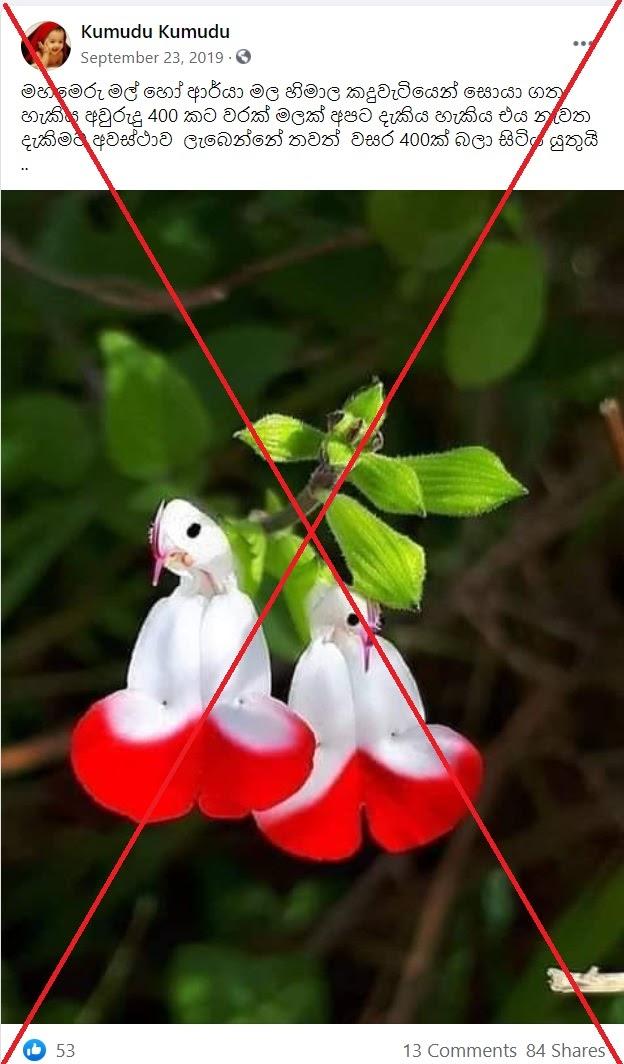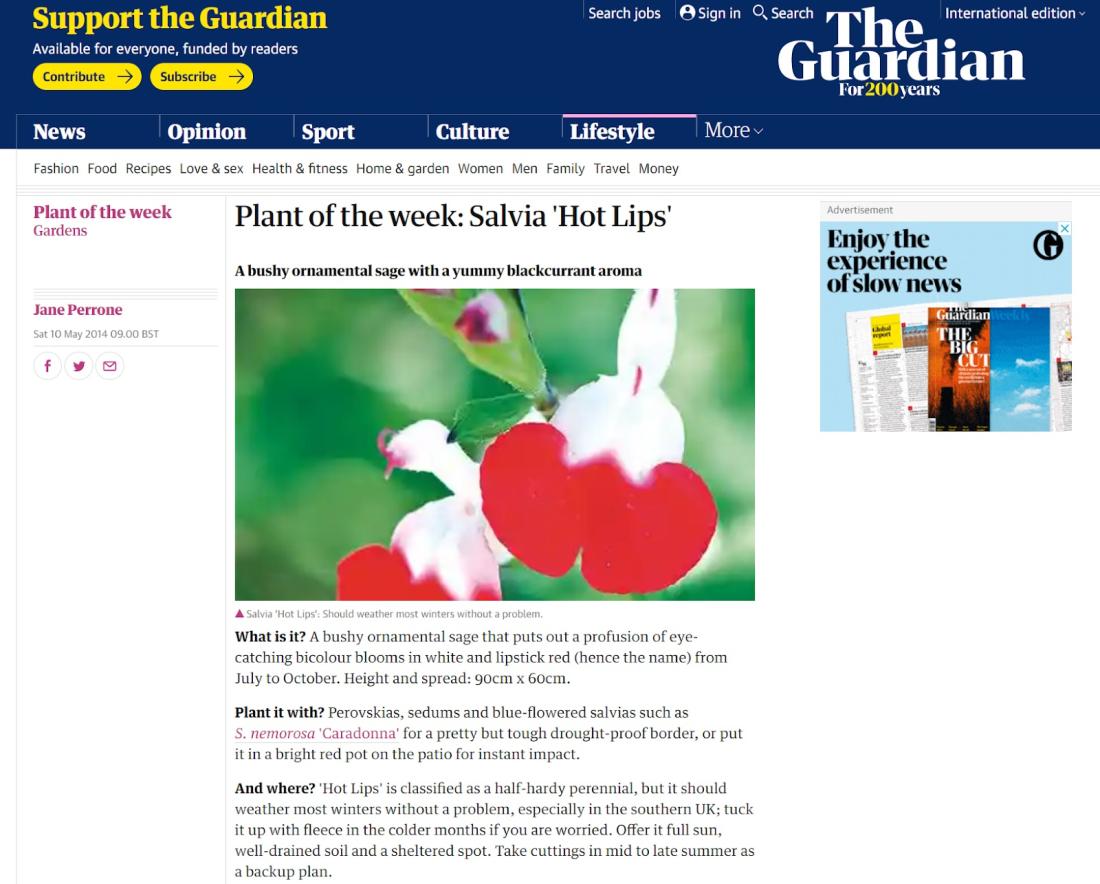
Posts falsely claim to show a rare flower that blooms every four centuries
- This article is more than four years old.
- Published on July 1, 2021 at 12:48
- Updated on July 5, 2021 at 07:24
- 1 min read
- By Lakna PARANAMANNA, AFP Sri Lanka
The picture was shared in this Facebook post published on September 23, 2019.
“Mahameru flower or Arya flower. Can be found in the Himalayan mountains. It blooms only every 400 years. If we are to see it again we would have to wait for another 400 years,” the Sinhala-language post reads.
Similar posts surfaced on Facebook in June 2021, as seen here and here.

However, the claim is false.
A reverse image search on Google led to a series of pages showing a plant variety named Salvia ‘hot lips’, including this 2014 article by British newspaper The Guardian titled ‘Plant of the week: Salvia 'Hot Lips'’.

According to its description, the plant known as ‘salvia microphylla’ is a garden variety plant that thrives in sunlight and blooms from July to October. The name ‘hot lips’ comes from the flower’s white and lipstick red colour, it notes.
Botanists also said that the flower in the image is salvia ‘hot lips’.
Chief Horticulturist of Britain’s Royal Horticultural Society (RHS), Guy Barter told AFP that the image shows a plant called salvia ‘hot lips’.
“This is Salvia 'Hot Lips', a garden variety commonplace in the UK and it flowers every year,” he told AFP. “I am not so sure that 'Mahameru flower' actually exists!”
Hoaxes claiming to show a rare flower variety named have previously surfaced online, as AFP debunked here.
Copyright © AFP 2017-2026. Any commercial use of this content requires a subscription. Click here to find out more.
Is there content that you would like AFP to fact-check? Get in touch.
Contact us
